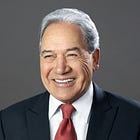Reserve Bank Expected to Cut Interest Rates Today Following Inflation Data Confirmation
AMP economist predicts third rate reduction this year as consumer spending remains weak

The Reserve Bank of Australia is widely expected to cut interest rates this afternoon after surprising markets last month by keeping the cash rate steady at 3.85%, according to leading economists monitoring the central bank's decision.
Diana Mousina, Deputy Chief Economist at AMP, told ABC News that recent inflation data has provided the confirmation the RBA needed to proceed with rate cuts after holding steady in July.
"I mean, never say never, I guess, after the surprise last month, but I think we basically have had the confirmation that the Reserve Bank was looking for with the June quarter inflation data," Mousina said during a television interview ahead of today's announcement.
The June quarter inflation figures showed inflation running around the middle of the RBA's 2% to 3% target band, providing crucial evidence that inflationary pressures remain contained.
"So it was the confirmation they really needed, that we're not seeing too many upward inflationary signals or pressures at the moment," Messina explained. "And I think that that's enough for them to cut interest rates today."
The expected rate cut would mark the third reduction this year, as the central bank responds to persistent weakness in consumer spending and broader economic softness.
Board Split Revealed in July Decision
Last month's decision to hold rates steady came despite internal pressure for cuts, with three of the nine board members voting to reduce rates while six preferred to maintain the current level.
"We know that there were three people of the nine people board last month that wanted to cut rates, but six people wanted to hold rates steady," Mousina said. "We know that there are people on board that want to cut rates."
The economist suggested the RBA's cautious approach reflects concerns about moving too quickly on monetary policy, particularly given the time lag between rate changes and their economic impact.
"The RBA has been a bit reluctant, I guess, to ease interest rates too quickly," she said. "We have already had two rate cuts this year, and I think that this third one will provide some further support to the economy, which I do think is needed, because consumer spending is still quite low."
Economic Conditions Support Rate Relief
AMP had forecasted a rate cut for the July meeting, with Mousinaindicating she would have voted for reduction if she were on the board.
"If I was on the board, I would have voted for a cut last month, and that was our forecast at AMP," she said.
The central bank's hesitation last month appeared to stem from a desire to review additional economic data, particularly following the release of June employment figures the day after the July meeting.
Those job numbers proved weaker than most economists had expected, though Mousina noted that when accounting for monthly volatility, the data aligned with broader forecasts.
"The broader set of economic data as well has more or less been in line with the Reserve Bank's forecast," she said. "So I suppose from their point of view, it's not like there's a pressing need to cut interest rates right now."
Despite the measured approach, current economic conditions suggest room for monetary support.
"The economy is not collapsing. It's sort of running at low-ish levels, but it's not terrible," Mousina said. "The labour market is still holding up well and we've had a bit of rate relief which takes time to work through the system."
Truth matters. Quality journalism costs.
Your subscription to The Evening Post (Australia) directly funds the investigative reporting our democracy needs. For less than a coffee per week, you enable our journalists to uncover stories that powerful interests would rather keep hidden. There is no corporate influence involved. No compromises. Just honest journalism when we need it most.
Not ready to be paid subscribe, but appreciate the newsletter ? Grab us a beer or snag the exclusive ad spot at the top of next week's newsletter.
Inflation Monitoring Remains Priority
The RBA's cautious stance reflects ongoing concerns about inflation management, with policymakers wary of triggering renewed price pressures through overly aggressive rate cuts.
Monthly inflation figures, while available in Australia, remain a relatively new data series that the central bank treats with some skepticism.
"So we do get monthly inflation figures in Australia, but they are relatively new series and the Reserve Bank is a bit cautious about putting too much emphasis or weight on them," Mousina explained.
The preference for quarterly data meant waiting until after the July meeting to assess the June quarter inflation outcome, which ultimately provided the reassurance needed for policy adjustment.
"They're also worried that if they cut rates too quickly that inflation is going to make a rebound again and that's something that they desperately want to avoid," Mousina said.
US-China Trade Relations Impact Australia
Beyond domestic monetary policy, Australia faces external pressures from ongoing trade tensions between its two largest trading partners, though recent developments suggest reduced immediate risks.
The United States has extended a deadline on significant sanctions imposed on China by another 90 days, a decision Messina described as expected by financial markets.
"I think that that decision was quite expected by financial markets because we haven't really seen too much noise from the Trump administration in the last few weeks that they want to hike tariffs on China again," she said.
The extension reflects the practical reality of US-China economic interdependence, with both countries heavily reliant on bilateral trade.
"I think they've basically realised that the two countries can't really decouple from one another. They are extremely reliant on each other from a trade point of view," Mousina said. "Both export about 15% of their goods to one another and both of them make up about half of world growth every single year."
Australian Exposure to Chinese Demand
For Australia, stable US-China trade relations remain crucial given the economy's heavy dependence on Chinese demand for commodity exports.
"I think basically this is good news for Australia because we are very reliant on the Chinese economy for demand for exports and we don't want to see a major slowing in Chinese growth," Mousina said.
Any disruption to US-China trade flows could significantly impact Chinese economic activity, with downstream effects on Australian export revenues.
"Chinese economic activity could soften a bit" if the US suddenly stopped importing Chinese products, she warned.
Outstanding Trade Risks Remain
Despite the sanctions extension, several trade-related uncertainties persist that could affect global economic conditions.
Pharmaceutical tariffs appear likely to increase, though no formal announcement has been made. The full impact of existing tariffs on US consumers also remains unclear, with early signs of inflationary pressure emerging.
"We haven't had an announcement on that yet. And we are yet to see what full impact tariffs have on the US consumer," Mousina said. "We're starting to see that come through. Inflation is picking up a little bit."
Rising US inflation could complicate Federal Reserve policy decisions and potentially undermine broader economic stability.
"I suppose the concern is that inflation may rise a lot in the US, and that would sort of derail any further rate cuts, and it may send the US economy into a bit of a dip," she said.
While not AMP's central forecast, such risks warrant monitoring over the next 12 months as trade policies continue evolving.
"That's not our forecast right now, but that is a risk that we are mindful of in the next 12 months," Mousina concluded.
The Reserve Bank's interest rate decision is scheduled for release this afternoon, with financial markets positioning for the third rate cut of 2025 amid ongoing economic uncertainty both domestically and internationally.
The Reserve Bank of Australia typically announces interest rate decisions at 2:30 PM AEST on the first Tuesday of each month.
Got a News Tip?
Contact our editor via Proton Mail encrypted, X Direct Message, LinkedIn, or email. You can securely message him on Signal by using his username, Miko Santos.
As well as knowing you’re keeping Mencari (Australia) alive, you’ll also get:
Get breaking news AS IT HAPPENS - Gain instant access to our real-time coverage and analysis when major stories break, keeping you ahead of the curve
Unlock our COMPLETE content library - Enjoy unlimited access to every newsletter, podcast episode, and exclusive archive—all seamlessly available in your favorite podcast apps.
Join the conversation that matters - Be part of our vibrant community with full commenting privileges on all content, directly supporting The Evening Post (Australia)
Not ready to be paid subscribe, but appreciate the newsletter ? Grab us a beer or snag the exclusive ad spot at the top of next week's newsletter.










